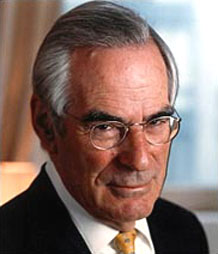

Some significant milestones are in sight for many future Hall of Fame baseball players. Today, Frank Thomas became the twenty-first player to hit 500 home runs (before being ejected from the game). And it's likely that sometime this weekend Craig Biggio of the Astros will become the twenty-seventh to reach 3,000 hits for his career. [Correction: Biggio knocked five base hits last night to surpass 3,000. Congratulations Craig!] Both are almost certain Hall of Famers. Thomas won two Most Valuable Player Awards in the 1990s, and while Biggio has started to slow down, he's been one of the more consistent hitters in the National League since 1988.
But they're not the only people who have significant milestones ahead of them. Of course, Barry Bonds is the most obvious, with just a handful of home runs to go before he ties Hank Aaron's record of career home runs. I'm no fan of Bonds, whose reputation has been dragged through the mud due to his suspected steroid or human growth hormone use. It's sad, too, because he was a certain Hall of Famer before he seems to have started using the substances. Add on his career-long surliness and attitude problems, and you probably have as many people hoping his hamstring snaps as he's circling the bases on 754, if not sooner, than rooting for him to break Aaron's record.
The guy I'm rooting for to reach his personal milestone is Tom Glavine, who is now three wins away from 300 for his career. After a stellar career with the Atlanta Braves, where he won two Cy Young Awards, he came to the Mets and has been solid. There was a point last year when I thought he might be able to win another Cy Young award; had he not been left with so many no decisions and reached 20 wins, he probably would have. I know a lot of Mets fans are sick of his soft-tossing and picky nibbling at the corners, but I'm a fan of smart pitching, and I enjoy seeing him work and listening to him talk about his craft.
Another craftsman is Roger Clemens, though I think we're finally seeing the final season of his remarkable career. He needs one more win to reach 350, and even though the Yankees suck, he should be able to get it despite his slowing fastball.
With such achievements in the near future, I wouldn't be surprised if Major League Baseball did something during the All-Star Game to recognize the achievements -- particularly for Thomas and Biggio. (To Bud Selig's happiness, Bonds will likely not have reached the Aaron mark by the All-Star Game.) Though Biggio doesn't deserve a spot in the game itself, I think it's a worthwhile gesture for these guys.







